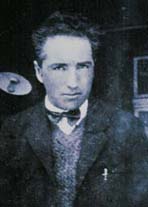Wilhelm Reich (1897-1957)

To give a quick biographical sketch of Wilhelm Reich is daunting, because his life is so complicated and unique, that it is not possible to summarize it briefly without seeming to miss the whole point.
One thing seems indisputable: Reich thought like no one else. However unique his ideas, they make amazing sense of everyday human dilemmas. Many have pointed out that Reich's ideas have strongly influenced the dominant culture (and many subcultures) without being attributed to Reich. What has been attributed to Reich is often taken out of context and distorted. It is interesting that Alexander Lowen took a publisher's advance to write a biography of Reich, and despite his proven ability to write with nuance about sensitive subjects, he was unable to write it.
It is far better for a reader truly interested to go ahead and read his biographies, one by Myron Sharaf, and one by Ilse Ollendorf, his second legal and third emotional wife. It seems that while both Sharaf and Ollendorf are attempting to be completely open and truthful, they both seem to be not describing the entirety of their experience with Reich. More than Sharaf, Ollendorf describes a personal and unglamorous side of Reich that is absent from his own autobiographical materials.
What about the role of Reich's work on present day efforts to lessen suffering, such as this website? Reich spent much of his career trying to prove in a laboratory sense what he understood intuitively in a clinical psychotherapy sense. Clues are that his laboratory work was not as convincing (for whatever reason) as his clinical work, which has clouded the handling of his ideas unnecessarily. Reich tended to open new ideas brilliantly, but perhaps had less patience for systematically analyzing all the aspects, at least in print. This lends an 'unfinished' quality to his legacy. He also had a tendency to devote a large portion of his writing to a polemical rebuttal of his critics, which is confusing to a reader who hasn't yet had a chance to nail down the original idea.
From Reich's own autobiographical materials, one point does seem to suggest itself. Reich's first, main and guiding interest was always sexuality. He did not 'start' with psychoanalysis, his own studies were well underway at that time. Rather he sojourned for a while with the psychoanalysts because they were the only ones talking seriously about sex at that time.